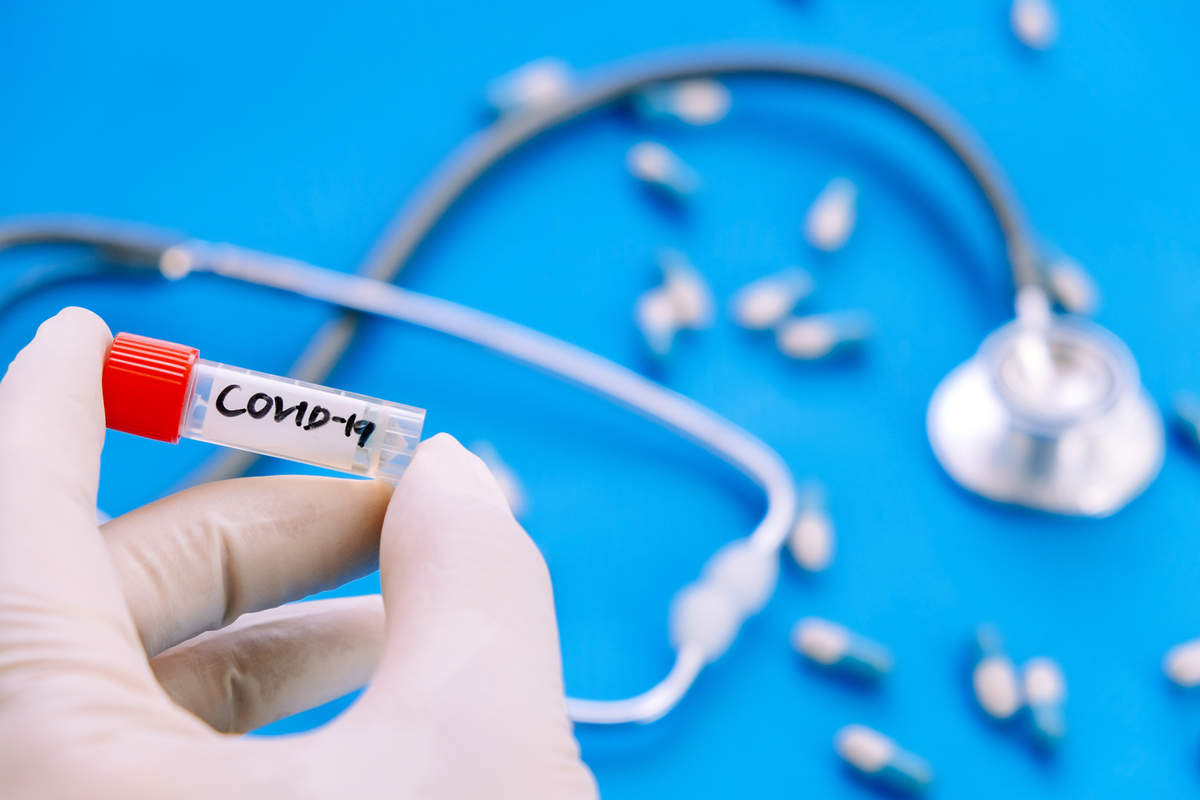The epidemic rebound of Covid-19 by the BA.4 and BA.5 variants worries the health authorities who are launching a fourth vaccination campaign. However, vaccination itself could promote infection. Explanations.
Jean-Marc Sabatier, you have just co-authored a well-documented article in a scientific journal that seems to show that, in some cases, anti-Covid vaccination favors the emergence of the infection. Is this really the case?

Indeed, multiple injections of Covid-19 vaccines do not only promote the production of neutralizing antibodies against the spike protein of SARS-CoV-2. Some antibodies to this spike protein may be facilitating, i.e., they may actually facilitate infection in the injected/vaccinated individuals in a phenomenon called ADE (antibody-dependent enhancement).
These multiple vaccine injections can also cause enhanced infection of injected/vaccinated persons (in case of subsequent infection with a SARS-CoV-2 variant) via a broader phenomenon called ERD (enhanced respiratory diseases) that does not necessarily depend on the production of facilitating antibodies.
In ERD, mechanisms such as cytokine storm triggering or exacerbation and cell-mediated immunopathology are also involved. Thus, ADE/ERD phenomena promote the infectious process and deleterious effects of the virus.
The risks associated with these phenomena after multiple vaccine injections are real and have already been described for many viruses, including SARS-CoV, MERS-CoV, and FIP (infectious cat peritonitis) coronaviruses, as well as dengue, Zika, HIV, Ebola, and measles viruses.
So are booster shots not necessarily a good thing?
When ADE/ERD phenomena exist for a given SARS-CoV-2 variant, viral infection (by this variant) of injected/vaccinated individuals is facilitated (these individuals are more easily infected by the virus), and this facilitated infection may lead to more severe Covid-19 disease than if these individuals had not been injected.
The paper published by Guerin and colleagues strongly suggests that emerging variants of SARS-CoV-2 (including Omicron and its sub-variants from BA.2 to BA.5 ) could promote these adverse events of ADE and even DRE, indicating that multiple booster vaccines are not desirable, as they are potentially deleterious in case of subsequent infection (in addition to these booster vaccines, there is the danger of direct toxicity of the vaccine spike protein and the adjuvants of these vaccines, including lipid nanoparticles in messenger RNA vaccines).
What is the mechanism of neutralizing and facilitating antibodies?
When infected with SARS-CoV-2 or vaccinated against Covid-19, our body produces antibodies directed against the virus proteins (in the case of SARS-CoV-2 infection or inactivated virus vaccination) or antibodies directed specifically against the Spike protein (in the case of current messenger RNA, viral vector or recombinant Spike protein vaccines) The antibodies produced fall into three categories: neutralizing antibodies (these antibodies are desired because they block viral infection), neutral antibodies (these antibodies have no effect on viral infection), and facilitating antibodies (these antibodies are not desired because they facilitate viral infection).
If the vaccinee is subsequently infected with a variant of SARS-CoV-2 that “responds” to ADE/ERD phenomena, the facilitating antibodies already present bind to SARS-CoV-2 and facilitate the infection of the cells by the virus. Indeed, phagocytic cells (monocytes, macrophages, dendritic cells…) possess a receptor (called Fc-gamma-RIIa) capable of recognizing antibodies attached to the virus particle, which allows the infection of these cells by internalization of the virus-antibody complex.
We are now, at the very beginning of summer 2022, with the BA.4 and BA.5 variants of SARS-CoV2 spreading in the population. Are they more virulent than the previous ones?
Data on the emerging BA.4 and BA.5 sub-variants of SARS-CoV-2 are still fragmentary, especially in humans in vivo. These viruses appear to be more contagious than the BA.2 subvariant in the 6ᵉ wave (late March to mid-April 2022) in France by approximately 8% (BA.4) and 12% (BA.5). These viruses also appear to be four times more resistant to neutralizing antibodies than the BA.2 subvariant. Although not very virulent and lethal, these viruses could replicate with a higher efficiency (compared to the BA.2 sub-variant) in human lung cells.
In veterinary medicine, cats vaccinated against Feline Infectious Peritonitis (FIP) coronavirus have been found to show more marked clinical signs after infection than unvaccinated control cats. Can this be transposed to humans?
Feline infectious peritonitis (FIP) is a viral disease of cats caused by a coronavirus, such as SARS-CoV-2. These are two coronaviruses that belong to separate but related families.
FIP virus is contagious to cats, but is not transmitted to other species (including humans). FIP viruses are enteric coronaviruses that have become pathogenic as a result of mutation(s). The pathologies associated with FIP are similar to the Covid-19 diseases. FIP and SARS-CoV-2 attack the host renin-angiotensin system (RAS) and will target the cat and human AT1R receptors, respectively.
Cats have been vaccinated with inactivated FIP viruses or a candidate vaccine based on a recombinant vaccinia vector expressing the FIP virus Spike protein. However, this vaccination did not protect them from oro-nasal inoculation with virulent FIP virus. On the contrary, vaccinated cats were more easily infected than unvaccinated cats.
This lack of protection suggests the existence of the ADE phenomenon, with the presence of facilitating antibodies. These facilitating antibodies allow the virus to better penetrate the target cells. This mechanism of facilitating the infection of cells by the virus would be problematic if it were found during multiple booster vaccination against SARS-CoV-2. Transfer to humans is theoretically possible due to the continuous emergence of new variants of SARS-CoV-2.
Finally, we are at four doses of Covid vaccine in less than a year. Isn’t there a serious risk of undermining the natural immunity of patients?
Vaccination against Covid-19 with multiple boosters is expected to induce Acquired Immune Deficiency Syndrome or AIDS (which is an immune syndrome independent of HIV) in the multi-injected/vaccinated. In fact, a certain proportion of the Spike protein produced by vaccines (mRNA and viral vector vaccines) or contained in vaccines (inactivated virus or recombinant Spike protein vaccines), is potentially capable of binding to the ACE2 receptor of target cells, as does SARS-CoV-2.
By interacting with the cell’s ACE2 receptor, the vaccine Spike protein will produce the same deleterious effects as the virus, i.e., dysfunction of the renin-angiotensin system (RAS), a ubiquitous physiological system that is essential for the functioning of the body’s organs and tissues. The RAS controls innate immunity via the AT1R receptor coupled to molecular pattern recognition Toll-like receptors. The dysfunction of the RAS will therefore be accompanied by a disruption of the innate immunity that it controls.
Innate immunity (which is non-specific to a microbe) is responsible for the subsequent triggering of adaptive/acquired immunity (which is specific to a microbe), based on T and B lymphocytes. Thus, the disruption of innate immunity also results in a disruption of adaptive/acquired immunity, i.e. a generalized disruption of the immune system.
In conclusion, repeated vaccine injections may result in the development of AIDS in multi-injected/vaccinated individuals. Furthermore, it has been reported that repeated vaccine injections of any one antigen (in this case, the SARS-CoV-2 Spike protein) at levels that exceed the “critical” threshold inevitably lead to dysregulation of innate immunity and the development of potential autoimmune disorders. Thus, for current Covid-19 vaccines, there are at least three good scientific reasons not to give multiple vaccine injections, with (1) the direct and harmful action of the Spike protein on the RAS and innate immunity, (2) the repetition of these injections which also disrupts the host’s innate immunity, and (3) the potential harmful effects of certain adjuvants, including lipid nanoparticles.
* Jean-Marc Sabatier is a research director at the CNRS and holds a PhD in Cell Biology and Microbiology. He is speaking in his own name.
The risks of Covid-19 (and vaccines) on sexual organs and fertility

